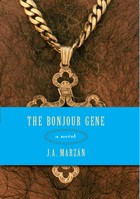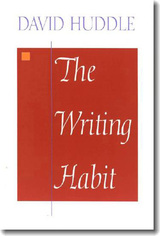6 books about Huddle, David

The Bonjour Gene
A Novel
J. A. Marzán; Introduction by David Huddle
University of Wisconsin Press
Edgar Bonjour, at middle age and after rising to a suburban family life, starts drug-trafficking with a motorcycle gang from his old South Bronx neighborhood and ends up dead. The published news of his murder sets the stage for introspection among other Bonjours, even those who did not know him, who interpret his returning to the past by way of a young woman gang member as the work of their family curse.
Descended from three French brothers who settled in Puerto Rico, Bonjours now belong to extended branches, some settled in New York City. Removed in varying degrees, all remain connected by the lore that only one island family possesses their surname, and that starting with the three brothers—sowers of a legacy of adultery and abandonment—every Bonjour male carries a reckless, womanizing gene.
Lineage and legend of lineage haunt but do not make these lives predictable. So Daisy, who hardly knew her father and has passed her prime without much interest in marriage, secretly falls in love with the man who paid her to marry him so he could get a green card. Ten-year-old Marco does not know what the reader does: that his visiting, divorced Bonjour father is gay. Recently married Gabriel, having flown to Puerto Rico to bury a father who intermittently entered his life, meets an African American down from Georgia, whom he learns is his embittered brother, and his beautiful stepsister, with whom he faces the same temptation that sidetracked his father.
Interconnected like his Bonjour families, these stories of unpredictable and unforgettable characters will transport the reader to a plane where ethnicity becomes universality.
Descended from three French brothers who settled in Puerto Rico, Bonjours now belong to extended branches, some settled in New York City. Removed in varying degrees, all remain connected by the lore that only one island family possesses their surname, and that starting with the three brothers—sowers of a legacy of adultery and abandonment—every Bonjour male carries a reckless, womanizing gene.
Lineage and legend of lineage haunt but do not make these lives predictable. So Daisy, who hardly knew her father and has passed her prime without much interest in marriage, secretly falls in love with the man who paid her to marry him so he could get a green card. Ten-year-old Marco does not know what the reader does: that his visiting, divorced Bonjour father is gay. Recently married Gabriel, having flown to Puerto Rico to bury a father who intermittently entered his life, meets an African American down from Georgia, whom he learns is his embittered brother, and his beautiful stepsister, with whom he faces the same temptation that sidetracked his father.
Interconnected like his Bonjour families, these stories of unpredictable and unforgettable characters will transport the reader to a plane where ethnicity becomes universality.
[more]

The Faulkes Chronicle
David Huddle
Tupelo Press, 2015
A work of uncanny originality, David Huddle’s nineteenth book is the account of an extraordinary death trip taken by a charismatic and beloved woman, her husband, and an astonishing number of offspring, from infants to young adults. The Faulkes Chronicle explores how children grieve, and shows how the wit and courage of even the littlest brothers and sisters can be a source of resiliance. Familial conversation composes an intimate requiem, transforming loss into comprehension. Only one of our finest writers could manage this delicate material. The Faulkes Chronicle is a brief, autumnal novel — made of momentary details yet with an encompassing grandeur.
[more]

Hazel
David Huddle
Tupelo Press, 2019
David Huddle’s twenty-first book, Hazel is a portrait of a woman both ordinary and exceptional, composed in glimpses of her life from child to elder. Hazel is a loner and somewhat of a pill. Although she’s not likeable in the regular ways, she’s rigorously honest in the way she examines her world, and in relationships with a few other people. Hazel’s nephew John Robert is captivated by the mystery of such a uniquely serious person. He assembles episodes from Hazel’s life, and the novel reveals a lifelong struggle by someone whose integrity is absolute. Huddle proves the complete life of almost anyone would be profoundly complex if seen whole.
[more]

My Immaculate Assassin
David Huddle
Tupelo Press, 2022
Maura Nelson, who has a sophisticated background in science, medicine, and programming, has stumbled upon a way to execute someone using only the computers in her home office—silently, anonymously, leaving no trace of violence, so that her target appears to have died of natural causes. Maura tests her method by eliminating Syrian tyrant Bashar al-Assad, but this experience affects her so deeply that she doesn’t want to continue alone. She entices Jack Plymouth into a partnership to rid the world of those they decide “need to be dead.” Both a steamy romance and a cyber-thriller, My Immaculate Assassin raises disturbing and timely questions about the technology and morality of “idealistic” murder, carried out remotely.
[more]

Nothing Can Make Me Do This
David Huddle
Tupelo Press, 2011
Can we ever truly know another person, however well-loved? Brainy, decent, funny, and likeable, the members of Horace Houseman’s family and his closest friend possess quirky and compelling interior lives that they reveal to no one else. Nothing Can Make Me Do This, David Huddle’s tenth work of fiction, enters the minds of Horace, Eve, Hannah, Clara, Bill, and others over fifty years, leaping in chronology an intersecting the vantage points, in a kaleidoscopic vision of a contemporary clan (and their secrets).
[more]

The Writing Habit
David Huddle
Brandeis University Press, 1994
Facing the blank page of the empty computer screen requires an unswerving belief in possibility, a steadfast assurance that something can and will come out of nothing. In The Writing Habit, David Huddle demystifies the writing task and shows that what may seem like alchemy is in reality a habit: the work itself, not magic, unlocks the writer’s potential. “A real writing life is not something you do merely for a day or a month or a year,” Huddle asserts. “For a writer, the one truly valuable possession is the ongoing work--the writing habit, which may take some getting used to, but which soon becomes so natural as to be almost inevitable.” Drawing from his own experience as a teacher and writer of poetry, fiction, and essays, Huddle explores the questions all writers--from novice to professional--face: Why write in the first place? How can writers fashion their lives to accommodate that all-important habit? What are some ways to deal with failure? What roles do memory, reality, and inspiration play in the creative process? How can prose best be crafted, characters brought alive, universal truths revealed from the bits and pieces of everyday life?
[more]
READERS
Browse our collection.
PUBLISHERS
See BiblioVault's publisher services.
STUDENT SERVICES
Files for college accessibility offices.
UChicago Accessibility Resources
home | accessibility | search | about | contact us
BiblioVault ® 2001 - 2024
The University of Chicago Press









